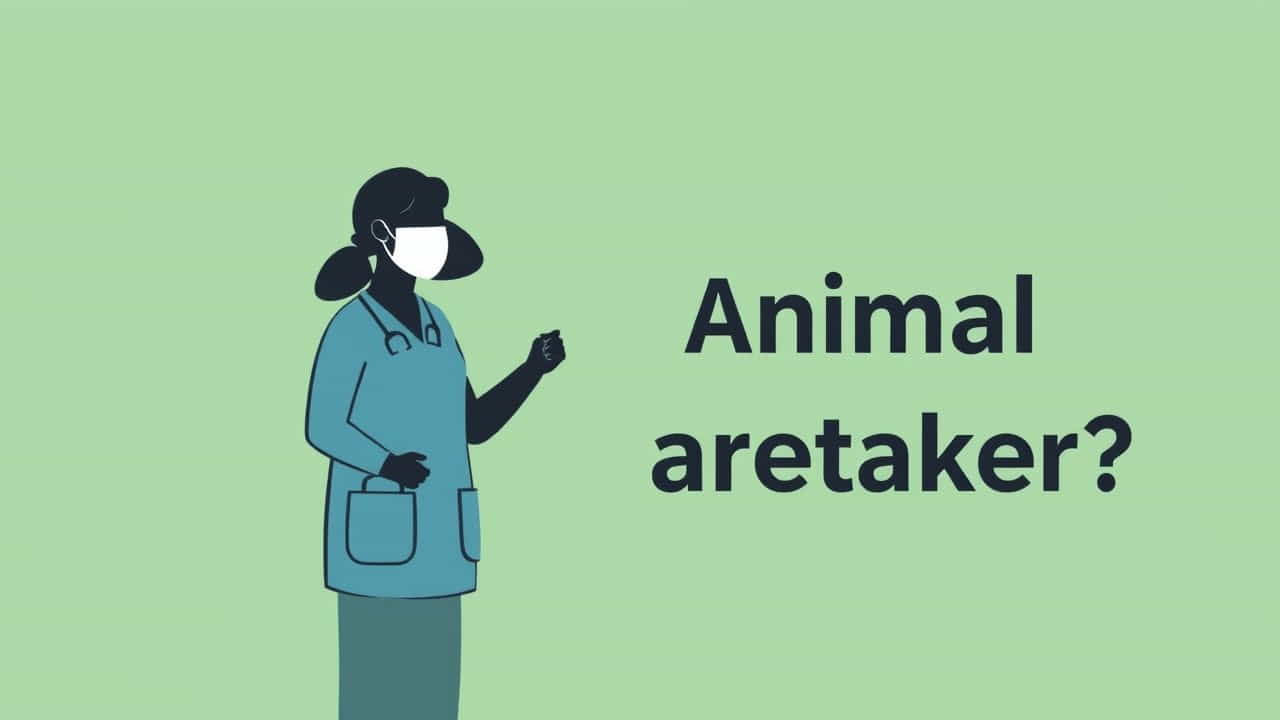An animal caretaker is a professional responsible for the daily care and well-being of animals. These individuals work in a variety of settings, including veterinary clinics, zoos, animal shelters, farms, and research facilities. Their duties range from feeding and grooming animals to monitoring their health and ensuring they live in clean, safe environments.
In this topic, we will explore the role of an animal caretaker, the necessary skills, job responsibilities, and career prospects in this growing field.
What Does an Animal Caretaker Do?
Animal caretakers provide essential services to animals, ensuring they receive proper nutrition, medical care, and attention. Their tasks vary depending on the setting in which they work.
Common Duties of an Animal Caretaker
-
Feeding and Hydration
-
Ensuring animals receive the right type and amount of food.
-
Providing clean water throughout the day.
-
-
Grooming and Hygiene
-
Brushing fur, trimming nails, and bathing animals.
-
Cleaning enclosures, cages, or tanks to maintain sanitation.
-
-
Monitoring Health and Behavior
-
Observing animals for signs of illness or distress.
-
Administering medications under veterinary supervision.
-
-
Providing Exercise and Enrichment
-
Walking dogs, playing with cats, or providing toys for mental stimulation.
-
Ensuring animals have social interaction and an enriched environment.
-
-
Assisting Veterinarians
-
Helping with medical procedures and record-keeping.
-
Restraining animals during check-ups or treatments.
-
Where Do Animal Caretakers Work?
Animal caretakers are found in various work environments, each with unique responsibilities.
1. Animal Shelters and Rescue Centers
-
Caring for abandoned, abused, or stray animals.
-
Preparing animals for adoption by providing basic training and socialization.
2. Veterinary Clinics and Animal Hospitals
-
Assisting veterinarians with patient care.
-
Cleaning and maintaining medical equipment.
3. Zoos and Wildlife Sanctuaries
-
Feeding and monitoring exotic and endangered animals.
-
Educating visitors about animal conservation.
4. Farms and Ranches
-
Taking care of livestock such as cows, horses, and chickens.
-
Ensuring farm animals have adequate shelter and proper nutrition.
5. Pet Boarding Facilities and Grooming Salons
-
Providing temporary care for pets while owners are away.
-
Bathing, brushing, and trimming pets to keep them clean and comfortable.
Essential Skills for an Animal Caretaker
To be successful in this role, an animal caretaker must have a combination of technical skills and personal qualities.
1. Compassion and Patience
- Working with animals requires a caring nature and the ability to handle different temperaments.
2. Physical Stamina
- Many tasks, such as lifting heavy animals or cleaning enclosures, require strength and endurance.
3. Attention to Detail
- Observing subtle changes in an animal’s behavior or health is crucial for early intervention.
4. Communication Skills
- Being able to report animal conditions to veterinarians, pet owners, or supervisors.
5. Knowledge of Animal Behavior
- Understanding how different species behave helps in handling them safely and effectively.
How to Become an Animal Caretaker
There are various pathways to becoming an animal caretaker, depending on the type of work and level of expertise required.
1. Educational Requirements
-
Many entry-level positions do not require formal education, but a high school diploma is often preferred.
-
Specialized roles, such as zoo caretakers, may require a degree in animal science, zoology, or veterinary technology.
2. Gaining Experience
-
Volunteering at animal shelters or working at pet stores provides valuable hands-on experience.
-
Internships at wildlife rehabilitation centers or farms can offer practical training.
3. Certifications and Training
-
Some employers may require certifications in animal care, first aid, or handling specific animals.
-
Programs like Certified Veterinary Assistant (CVA) can enhance job prospects.
Job Outlook and Salary of an Animal Caretaker
Growing Demand for Animal Care Professionals
The demand for animal caretakers is increasing as pet ownership rises and awareness of animal welfare grows. According to labor market studies, employment in this field is expected to grow steadily over the next decade.
Average Salary of an Animal Caretaker
-
Entry-level positions: Around $25,000 – $30,000 per year.
-
Experienced caretakers: Can earn up to $40,000 or more, depending on specialization and location.
Challenges of Being an Animal Caretaker
While working with animals can be rewarding, it also comes with challenges.
-
Physically Demanding Work – Lifting heavy animals, cleaning large enclosures, and working in outdoor conditions can be exhausting.
-
Emotional Strain – Seeing neglected or sick animals can be heartbreaking.
-
Irregular Hours – Many caretakers work weekends, holidays, or night shifts, especially in shelters and veterinary clinics.
Is a Career as an Animal Caretaker Right for You?
If you love animals and are willing to work hard to ensure their well-being, this career might be a perfect fit. While it requires patience, physical effort, and dedication, the rewards of helping animals live healthier, happier lives make it all worthwhile.
Animal caretakers play an essential role in ensuring the health and happiness of animals in various settings. Whether working in a shelter, zoo, or veterinary clinic, these professionals make a difference in the lives of countless animals every day.
For those passionate about animal welfare, becoming an animal caretaker is a fulfilling career choice that combines love for animals with hands-on care and responsibility.
